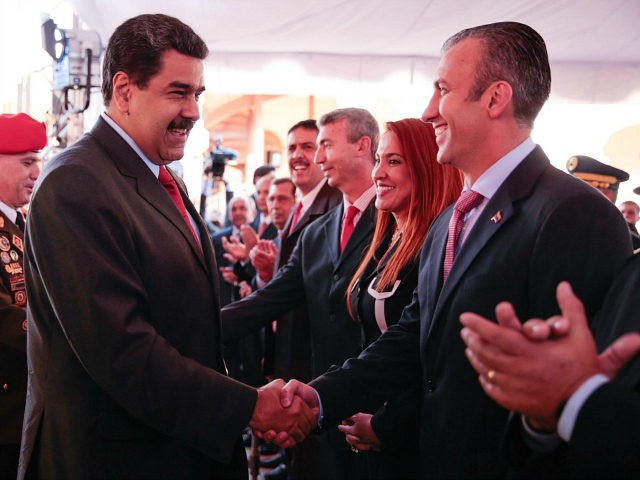Legal and foreign policy experts suggest the New York Times (NYT) may have pushed ethical boundaries by allowing vice president of Venezuela, a U.S.-designated drug kingpin, to blast the President Donald Trump’s administration in a full-page open letter.
Vice President Tareck El Aissami demanded that the U.S. Treasury Department rescind its decision to list him as “a Specially Designated Narcotics Trafficker pursuant to the Foreign Narcotics Kingpin Designation Act (Kingpin Act) for playing a significant role in international narcotics trafficking.”
Full letter by Tareck El Aissami published today in New York Times pic.twitter.com/HGhdXydhOa
— Nathan Crooks (@nmcrooks) February 22, 2017
In announcing its designation last month, the Treasury Department noted, “as a result of today’s action, U.S. persons are generally prohibited from engaging in transactions or otherwise dealing with these individuals and entities, and any assets the individuals and entities may have under U.S. jurisdiction are frozen.”
Robert Destro, a law professor at The Catholic University of America’s Colombus School of Law in Washington, D.C., explains that sanctions imposed by Treasury are aimed to prevent “U.S. persons,” a term that includes both individuals and corporations, from providing any assistance to Specially Designated Narcotics Traffickers.
“Americans are not supposed to be helping sanctioned individuals,” Destro told Breitbart News. “In every case, the Treasury Department wants to know who is dealing with these traffickers. If you or I bought such an ad, or facilitated its placement, we would have a lot of explaining to do.”
Destro stressed that without knowing who paid for the ad, or whether NYT had received a license to publish it, it is impossible to say whether or not the Times did anything wrong.
The Treasury Department and NYT have not responded to Breitbart News’ requests for comment at press time.
Although Joseph Humire, an expert on South America, echoed the law professor in being unable to say whether the Times violated the restrictions imposed by Treasury, he added that NYT may have knowingly aided a sanctioned drug lord by running the full-page letter from El Aissami.
Asked to comment, Humire, the executive director of the Center for a Secure Free Society (SFS), told Breitbart News that he thought the ad may have broken the law, noting that it is hard to determine without knowing who exactly bought the ad.
“I figured that was the point — to show U.S. authorities and the American public that he [El Aissami] is somehow ‘above the law,’” he said.
“If the [Venezuelan vice-president] or any of his sanctioned frontmen [Samark Lopez Bello, sanctioned in the same Treasury statement] bought the ad directly, that would be a violation of the Treasury sanction, i.e. breaking the law,” continued Humire. “But I imagine that [the VP] didn’t pay for the ad himself, but rather through another frontman — perhaps someone not directly tied to him or his accounts.”
“That said, the NYT definitely knowingly aided a sanctioned drug trafficker by running the ad,” he concluded.
The U.S. Treasury Department clearly cited its reasons for labeling Venezuela’s vice-president a drug kingpin.
El Aissami “facilitated shipments of narcotics from Venezuela, to include control over planes that leave from a Venezuelan air base, as well as control of drug routes through the ports in Venezuela. In his previous positions, he oversaw or partially owned narcotics shipments of over 1,000 kilograms from Venezuela on multiple occasions, including those with the final destinations of Mexico and the United States,” determined the Treasury Department.
The South American vice president, who the U.S. government has linked to other Venezuela-based drug lords, served as governor country’s Aragua state and as the nation’s minister of interior and justice, prior to being elected to his new post in January of this year. He has been tied to Mexican drug cartels, the South American cocaine trafficking enterprise Cartel de los Soles, and the Shiite terrorist group Hezbollah.

COMMENTS
Please let us know if you're having issues with commenting.